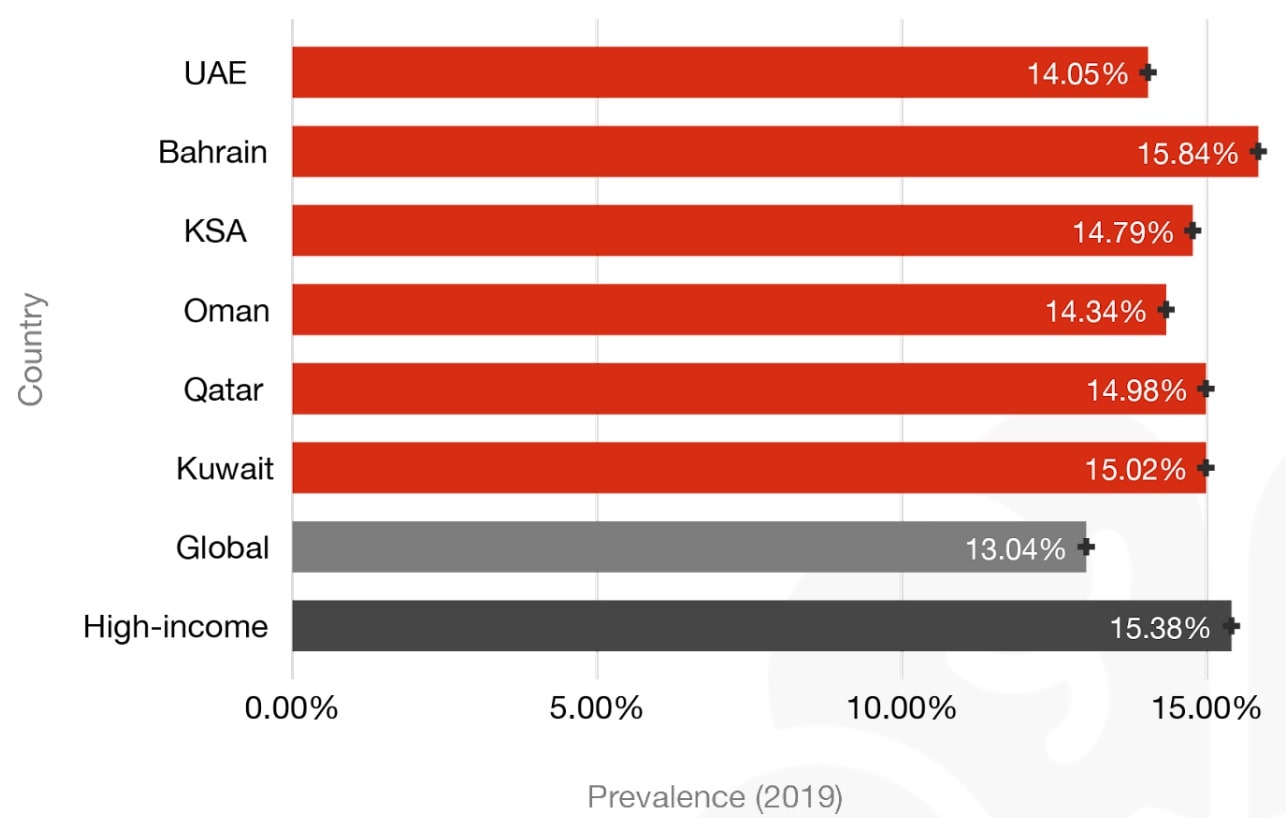In a new thought leadership series, we build upon our previous report released in conjunction with the World Government Summit on “Making mental wellbeing a national priority”, and look at why governments should invest more in mental health.
Within the GCC, approximately 15% of the population are believed to suffer from mental disorders in any given year1. Common mental disorders include anxiety, depression, eating disorders, dementia and substance abuse (among others).
Even before the pandemic, WHO reported that anxiety and depression alone afflicted 284 million and 264 million people respectively4. Yet the scale of the problem is likely to be larger as many never seek help from a qualified professional. In Saudi Arabia, for example, 80% with severe mental disorders do not seek treatment5.
Every year, 12 billion productive days are lost due to depression and anxiety, costing the global economy $1trillion in lost productivity6. Yet, less than 2% of the global health budget is spent on mental health7. In the GCC, mental health care systems still suffer from structural challenges, including the shortage of mental health professionals.
Additionally, studies have found that for every $1 invested in scaled-up treatment for depression and anxiety, there is a $4 return in improved health and productivity8.
Clearly, there is a strong economic case for governments and businesses alike to invest more in increasing access to mental health care for citizens in the GCC:












